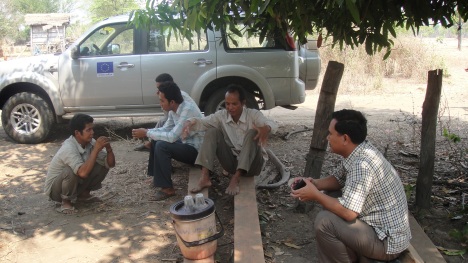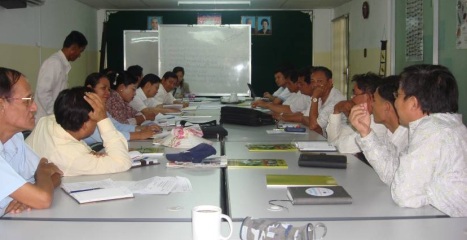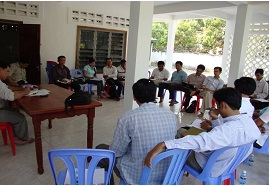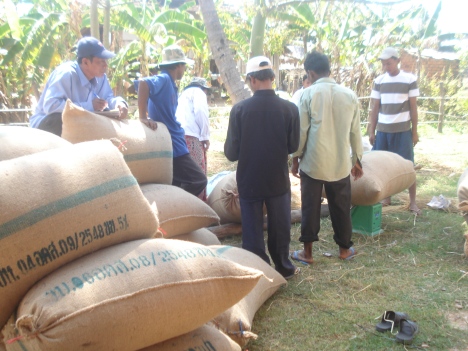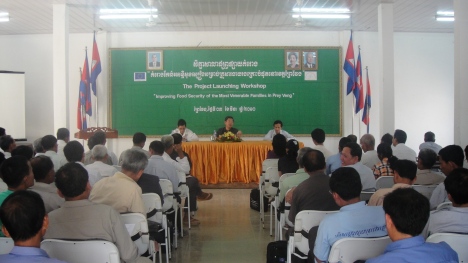3 staffs from CEDAC, Mr. Yi Kim Than, Mr. Yim Sok Sophors and Mr. Ma Veasna attended a 3-day training workshop on Climate Change at Sunway Hotel in Phnom Penh from 30 March to 1 April 2010. This is the second traning workshop organized by CORD, DCA/CA, and ForumSyd. Mr. Robert Solar is the trainer of the training. The case study analysis was conducted during the workshop in order to enable the participants to learn about practical experiences from the other projects and oher communities. Through the understanding from the case studies, it provided us some ideas how to design the climate change project. Importantly, we could know what can be integrated into our programmes for the context in Cambodia.
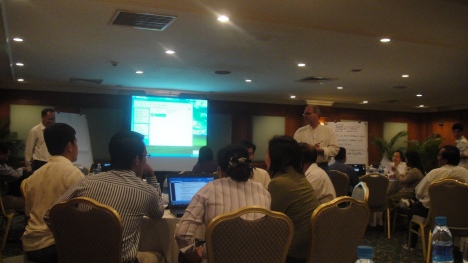
At the second day of the workshop, the participants worked separately to design the project proposal on climate change which is alligned with their self-organization assessment and the initiative action plan of each organization. The result will be presented to panel in order to give feedback and comments for improving the project proposal. It is expected that the participants will be able to design the project proposal at the end of the workshop and they know how to integrate climate change into their current programmes.

At the second day of the workshop, the participants worked separately to design the project proposal on climate change which is alligned with their self-organization assessment and the initiative action plan of each organization. The result will be presented to panel in order to give feedback and comments for improving the project proposal. It is expected that the participants will be able to design the project proposal at the end of the workshop and they know how to integrate climate change into their current programmes.
